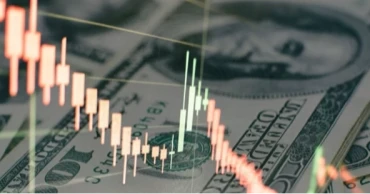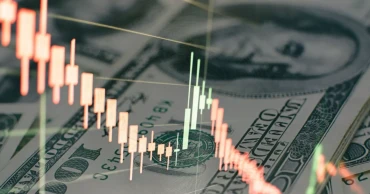IMF formula
Bangladesh's useable forex reserves drop to $15.82 billion: Sources
Bangladesh’s foreign exchange reserves continued to fall with the usable reserves standing now at USD $ 15.82 billion as per IMF guideline, according to banking sources familiar with the development on Tuesday (November 28, 2023).
During the period of the COVID-19 pandemic two years ago, the reserves had soared to $48 billion, thanks to greater inflow of remittances amid reduced import demand. The reserves started decreasing since the eased import restrictions and impact of the Russia-Ukraine war.
Also read: Forex reserves below $20 billion after paying ACU
The latest foreign exchange report of Bangladesh Bank (BB) revealed that the country's reserves on 23 November stood at $19.52 billion based on the IMF formula (Balance of Payments and International Investment Position Manual) or BPM6.
As per the formula, the net reserves will be $3.7 billion less than the total reserve amount, the BB sources said.
The BB spokesperson Mezbaul Haque in this regard told UNB that foreign exchange from reserves is spent and deposited every day.
Also read: IMF relaxes forex reserve and revenue targets for $4.70 billion loan
It is a continuous process of a country, he said advising common people not to panic at the news of decreasing foreign exchange.
In July, Bangladesh started calculating its foreign reserves according to a formula suggested by the International Monetary Fund – BPM6.
Following the new calculation, Bangladesh's gross foreign exchange reserves that time dropped by $26.44bn to $23.56bn.
Also read: Bangladesh stands on the edge of deep ditch before the polls: Dr Debapriya
2 years ago
Bangladesh’s forex reserves now $34.3 billion, as per IMF formula it’s $26.3 billion
Bangladesh’s foreign exchange reserves is falling due to meeting import demand of essential goods and a downward trend in remittance-export incomes, the latest data of Bangladesh Bank (BB) revealed.
After paying $1.35 billion to Asian Clearing Union (ACU) as an import bill for September-October, and $131 million spent to meet LC liabilities, the forex reserves stood at $34.3 billion at the end of November 7.
BB spokesperson Md Abul Kalam Azad told UNB that the liabilities of import payment are decreasing gradually after reining in opening of import LCs.
Read more: Forex reserves still enough to cover 5 months' imports: PM
US $1.35 billion in ACU bill has been paid in September-October. Earlier, Bangladesh had to pay $1.73 billion for July-August period and $1.96 billion during May-June, he said.
The central banks and the monetary authorities of Bangladesh, Bhutan, India, Iran, Maldives, Myanmar, Nepal, Pakistan and Sri Lanka are currently members of the ACU.
According to the suggestion of International Monetary Fund (IMF), if $8 billion used as export development fund is excluded from the foreign exchange reserves, then the reserves stand at $26.3 billion. It is the lowest in 7 years. Forex reserves were $35.8 billion on October 30, 2022.
Read more: None can chew up forex reserve, it’s for the people: PM Hasina
Bangladesh’s foreign exchange reserves reached an all-time high of $48.06 billion in August 2021 and a record low of $42.5 million in August 1974.
Despite curbing imports, the foreign exchange reserves are falling sharply.
Opening of new LCs has been reduced. But the liability of the previously opened LCs is now payable in terms of arrears or late payment. Due to this, the dollar crisis is becoming more acute.
Read more: What are the 3 reasons behind Bangladesh’s falling forex reserves?
Bangladesh will be able to meet the import expenses of three and a half months with the current forex reserves.
Regarding the tightening of imports, economists said that forex reserves cannot be increased by stopping imports. Domestic products need some imported materials. If not, the economy will be adversely affected.
Former BB governor Dr. Salehuddin Ahmed told UNB that declining reserves are a major challenge for the economy.
Read More: How to safely send remittance to Bangladesh?
“Now we have to think about how to meet this challenge. First, we need to emphasize increasing remittances. Dollar rates should be left to the market,” he said.
Banks in Bangladesh will buy dollars at the required rate. It does not matter whether it is Tk 112 or more. It is important to raise remittance now, former governor of Bangladesh Bank Dr. Salehuddin said.
3 years ago



